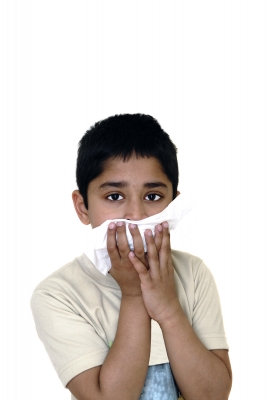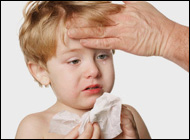Asthma often elicits unneeded antibiotics for kids
One out of six kids with asthma receives an antibiotic they don’t need, according to new study findings.
The researchers found that doctors prescribe roughly 1 million unnecessary antibiotics to U.S. kids with asthma each year, potentially encouraging the spread of “superbug” infections that are resistant to even the most powerful drugs.
Another study published in the same issue of the journal Pediatrics shows the U.S. is not the only country to over-prescribe antibiotics in kids with asthma - researchers in Belgium found that kids who receive drugs for asthma were nearly twice as likely as other kids to also get an antibiotic.
“You must have a good reason to prescribe both an asthma drug and an antibiotic,” study author Dr. Kris De Boeck of the University Hospital of Leuven told Reuters Health.
This “overuse” and “incorrect use” of antibiotics will “put pressure on bacteria and drive them to develop survival strategies,” thereby increasing the likelihood they will become resistant to the drugs, added De Boeck.
 Babies and young children commonly develop wheezing when they have a respiratory infection, so doctors may prescribe an antibiotic. But for some children, that wheezing is an early indication of asthma.
Babies and young children commonly develop wheezing when they have a respiratory infection, so doctors may prescribe an antibiotic. But for some children, that wheezing is an early indication of asthma.
And for children already diagnosed with asthma, official guidelines stipulate that doctors should not include antibiotics as part of treatment, except in children who also have infections.
To investigate whether doctors are following that advice, Dr. Ian M. Paul at Penn State College of Medicine and his colleagues reviewed information collected as part of national surveys about U.S. doctors’ visits. They reviewed more than 60 million visits involving children with asthma and no declared symptoms suggesting they had an infection that could be treated by an antibiotic. Regardless, during 1 in 6 of those visits, the children received a prescription for an antibiotic.
 Meanwhile, De Boeck and her team reviewed a database from the insurer that covers more than 40 percent of the Belgian population, and found that kids receiving asthma drugs were 90 percent more likely to also get an antibiotic during the same year. Specifically, nearly 75 percent of kids who received asthma drugs also got an antibiotic, which occurred in less than 40 percent of kids who were not given any drugs to treat asthma.
Meanwhile, De Boeck and her team reviewed a database from the insurer that covers more than 40 percent of the Belgian population, and found that kids receiving asthma drugs were 90 percent more likely to also get an antibiotic during the same year. Specifically, nearly 75 percent of kids who received asthma drugs also got an antibiotic, which occurred in less than 40 percent of kids who were not given any drugs to treat asthma.
Many doctors likely offer antibiotics to asthmatic kids “out of fear, out of habit,” De Boeck said in an email. “Some physicians state that parents do not want to leave the consultation room before they get a medicine.”
There may also be some confusion over when kids need antibiotics, and hopefully “teaching” and “awareness” will help give doctors a better understanding, said De Boeck. For instance, kids with fever, wheeze, and “diffuse disease” may have asthma triggered by a viral infection, which will not respond to an antibiotic.
“It is common knowledge that antibiotic overuse leads to increased bacterial resistance in the community,” write Dr. Rita Mangione-Smith of the University of Washington and Paul Krogstad of the University of California, Los Angeles, in an accompanying editorial. “As we continue to overuse antibiotics, our armamentarium to fight resistant infections continues to shrink.”
SOURCE: Pediatrics, online May 23, 2011.